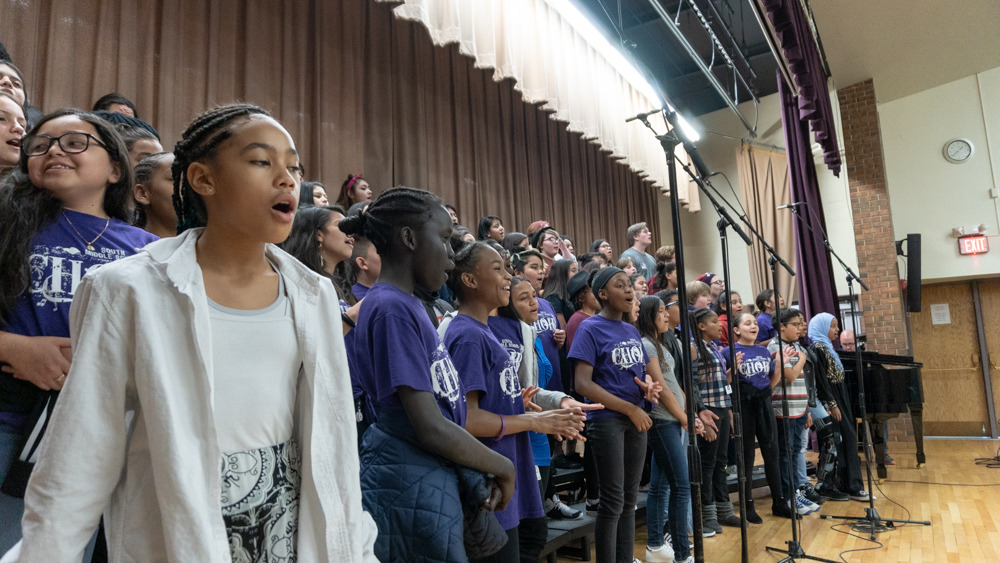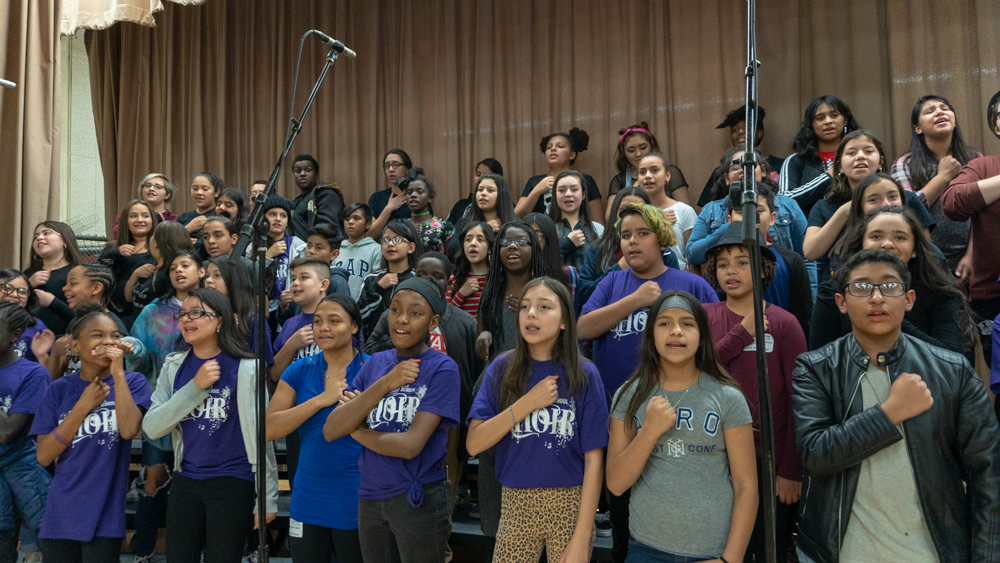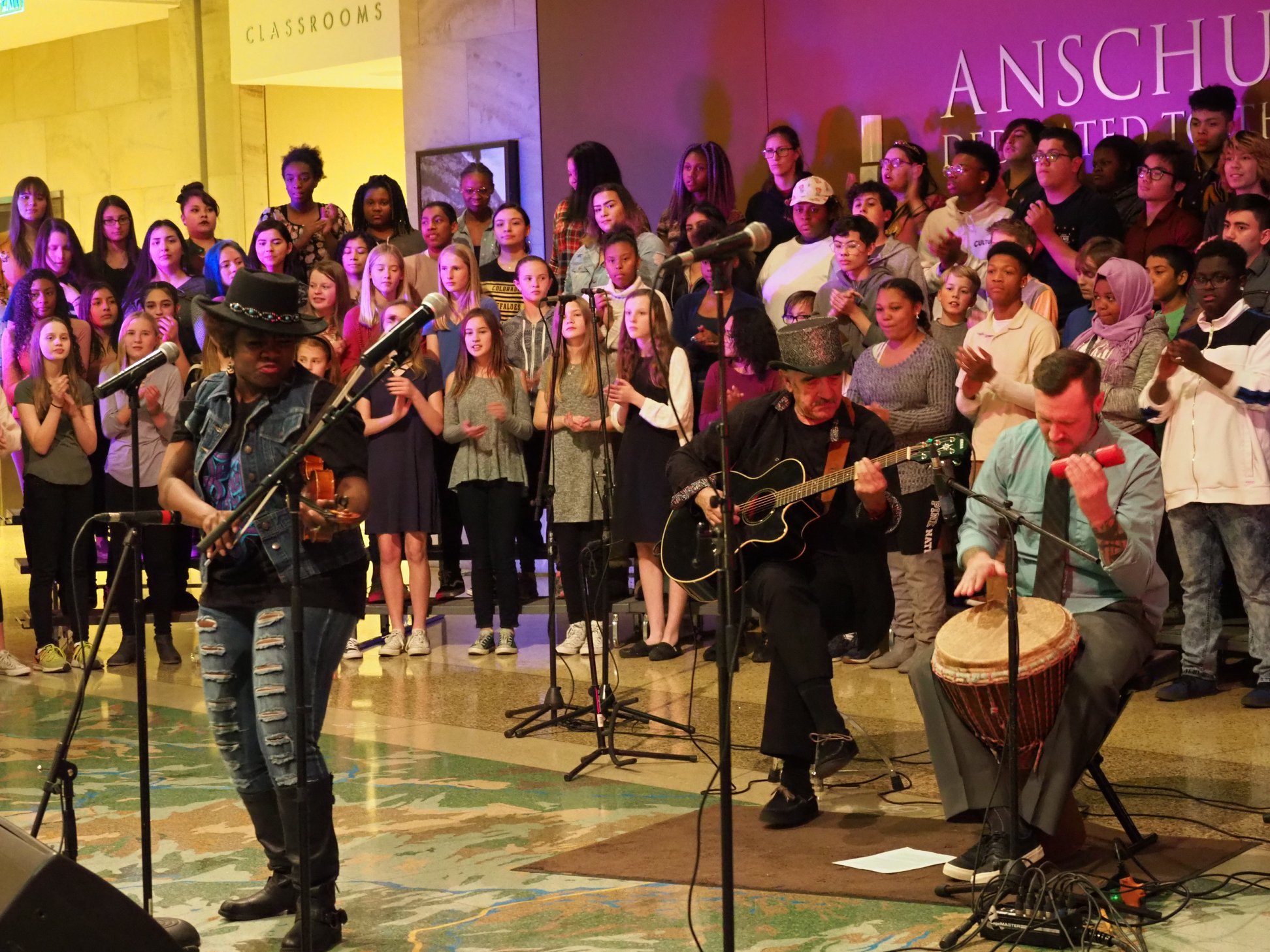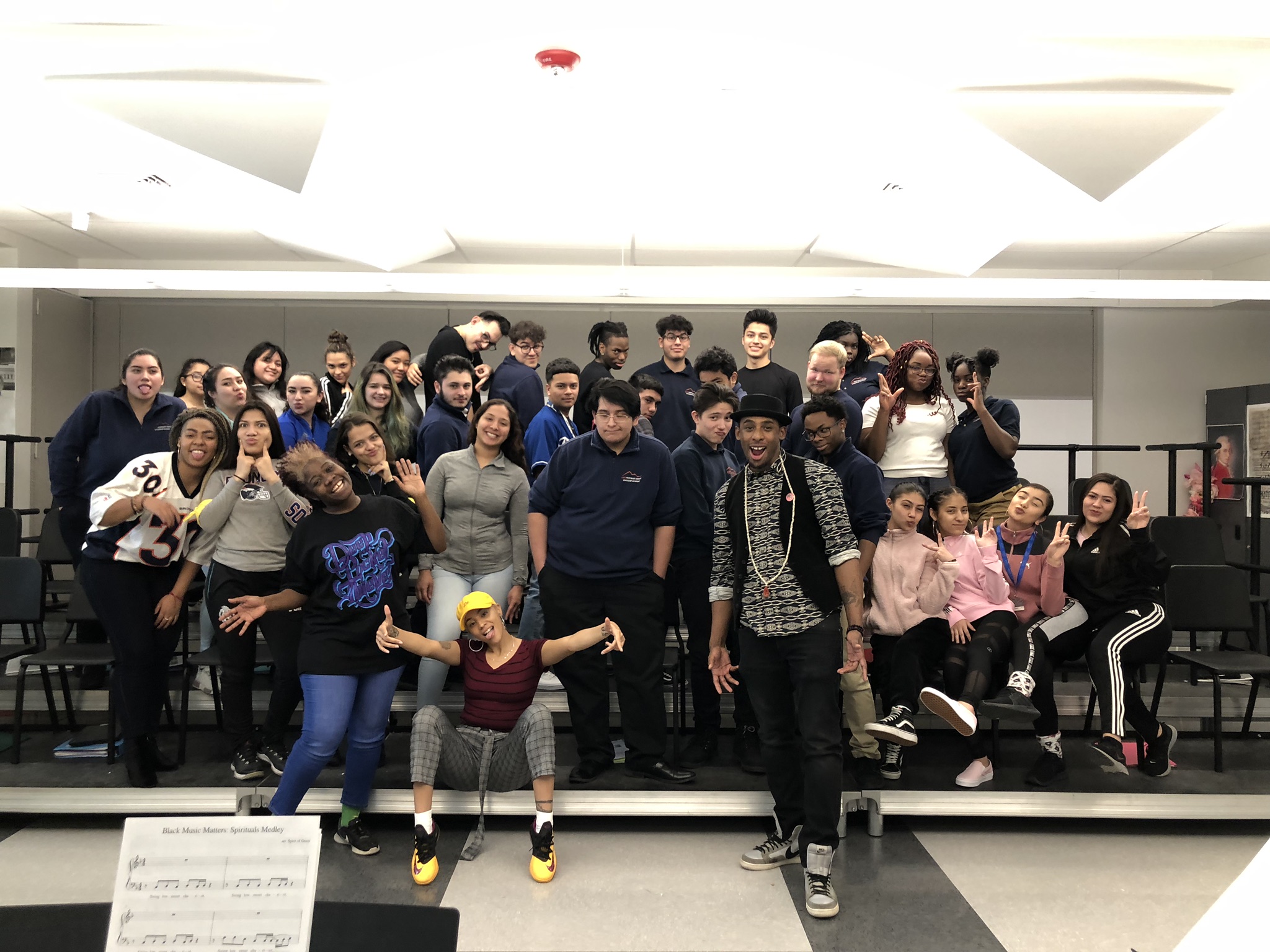Vocal Coalition (VOCO) isn’t your ordinary children’s choir. Based on the foundation of unifying equity-minded individuals through music, VOCO is a children’s choir breaking barriers. Whether that be through physical disabilities or the color of one’s skin, VOCO challenges its listeners as well as its talented little singers to indulge and understand culture through music and local musicians. For Black History Month, the group will return for their second annual Black History Matters program, whereby they will work with local musicians and sing their songs through the lens of black history. Prior to the performance, we sat down with VOCO founder, Travis Branam and creative director of Black Music Matters Larea Edwards, to talk about the kids who make up VOCO, the group’s mission and why,in fact, black music matters.
303 Magazine: What inspired VOCO and how did it begin?
Travis Branam: It began from a failed blog. I was trying to share my affinity for classical music with my friends and random people that might stumble upon it, trying to convince them that classical music had something to offer them, but nobody was really picking up what I was trying to drop. So, I decided that maybe if there was going to be a change, maybe I’m the one that needed to change. That turned my entire world upside down. Instead of asking people to support what I cared about, I decided to go out into the community and support what other people were doing, and see if I was even willing to do the thing I was asking other people to do — support their music and learn to care about music and culture that I didn’t have a connection to and didn’t understand.
303: You work with a lot of high school and middle school kids within VOCO. What schools do you participate with and how do you get the kids involved?
TB: VOCO has a couple of different “alliances,” like the student alliance, which are a bunch of choir kids from across the Denver Metro area. They get together once a week and really believe in this idea of unifying equity-minded humans through music. There are also vocal music educators from across the Metro area, that also believe that what VOCO stands for is in alignment with their music program, so they’ll choose an event we’ve already lined up and they’ll join in and participate in that way.

303: At what point did kids become involved with VOCO?
TB: Previously I was a conductor for a professional children’s choir. I strongly believe in the power of people coming together and singing, and I’ve always loved working with kids. The music the kids were singing was pretty similar, what I wanted to do was create a choir where equity was the bedrock and the reason to sing, letting everything else coalesce around that value. As I went out into the community and was listening to local music, I was blown away by the music I was hearing and it made a lot of sense to be sung by students. It wasn’t “choir music,” and a lot of it was of genres not normally sung by choirs, but my hope was that we could create a choir where the repertoire was the music of the city, and we would perform the music with the artists that wrote the songs.
303: Can you describe the Black Music Matters program?
TB: This is our second year doing it and the scope of the event is showing the story of the black experience from Africa to Colorado, through music, dance and narration.
303: What inspired you to produce the Black Music Matters program?
Larea Edwards: Well Travis asked me if I’d do something with VOCO. I told him, I wanted to teach the kids spirituals and it makes sense to do that around Black History Month. I tried to figure out what I wanted to do because I’ve seen so many things done. My kids are in VOCO, which is an amazing story because Travis, he made VoCo Coalition fifth grade and higher because my daughter was in fifth grade when she started and she’s paralyzed on her right side. The day before my fifth wedding anniversary, she and my husband were in a car accident, I was at home with our two-year-old and she was thrown from the car and my husband died. She’s in fifth grade and she was singing her heart out of the VOCO program. Travis wrote me this four-page letter saying, “your kid is amazing. Is there anything I can do to help foster the artist inside of her?” He said, “I want to be a part of this, can she be a part of our group? I know she’s too young, but her heart’s there.” So I went for a few, and they had me in tears. I was like, okay, all is not lost. Even though the doctors told me she never walk or talk again, but she’s making up dances and she’s teaching the whole group. Fast forward, I have a group Travis knows about, [he] hears us perform a few times. He said we had to do something with VOCO. I started trying to figure out what that would look like, and in my mind, I thought it was going to be something small, like 50 people in a middle school auditorium. Next thing I know, its 150 kids and we’re selling out the Colorado History Museum — it just blew up from there. It was born a dream born of an attempt to do something and give back to somebody who has done so much for me and mine who has given so much to my child for absolutely no reason. I love to work with kids, so it is a lot of fun for me too, especially to have them singing our songs and just the opportunity to explain the spirituals because it’s really started breaking down walls.

303: Can you dive a bit into your background prior to VOCO?
LE: I am the leader of the group, Spirit of Grace, which is me, my sisters and my cousin, and the minister of music at my church, Rapture Missionary Baptist Church. Our dad is the pastor and we just always sang. They call us “the Miracle Sisters,” when you have a problem or have somebody that needs some work, they’ll call us like, “hey, can you go help with this song?” We sang for David Foster, we opened up for Common, we’ve toured with the Flobots and we did eight songs on their latest album. Music is my thing.
303: What’s the goal of having the Black Music Matters program?
TB: To honor the story that the community wants to tell, created from a place of co-creation, not appropriation. It’s an authentic telling of the story by the artists who lived it. My hope is that through Black Music Matters, students are coming into contact not with black music, but with the artists who are creating it, and that creates a much more human and authentic experience and hopefully provides them something meaningful, that shifts the way they experience music and culture. What VOCO is really trying to combat is ethnocentrism — evaluating someone else’s culture through the lens of your own culture. That’s what the overarching vision is, by uniting equity-minded humans. Depending on how you identify, you’d come from Black Music Matters, either with something that really honors your culture, or gives you a deepened understanding of someone else’s culture.

303: What do you think the kids take away from Black Music Matters, as they perform these songs?
LE: So as I told you, I’ve been teaching kids forever. I’ve been teaching with a group called Child Evangelism Fellowship — these are like the whitest of white kids you’ve ever seen in your life. One year, I took a group of kids, because they were kind of scared about the inner city, to Five Points. Called some of my ex-gang member friends to come down and meet us, escort us around — this was back before Five Points became “Price Point,” way before it was a “gentri-fried-vacation.” They learned that, oh, you’re just people, and through that, all of them are different. They all are different than their parents were. That’s what I want to create — a generation of kids who understand a culture and who are not afraid of said culture. It builds their showmanship, their confidence and it helps them to network. To step out of their comfort zones and their boxes and actually talked to somebody different than them, and look at a perspective that is different than their own and make the decision that they want to go for further with that. It is called starving artists for a reason, so with this, we want to teach them positive and useful ways to engage in their craft.






